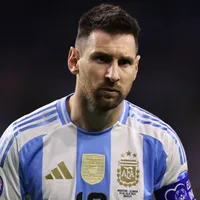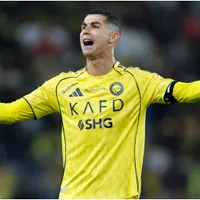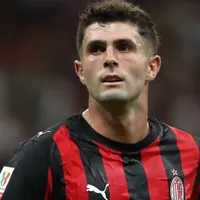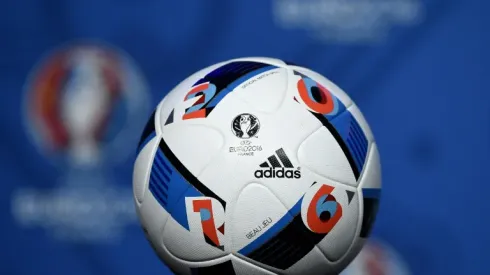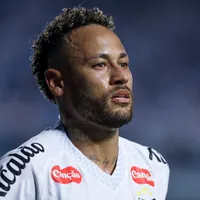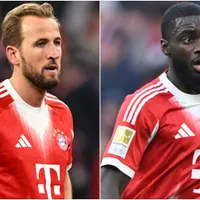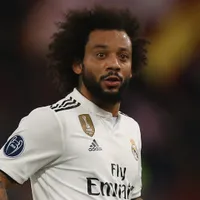
With the European Championships less than a month away, managers participating in the competition have plenty to grapple with – squad selection, the new tournament’s format, and the unrivaled pressure of a major international tournament. Here is a look at the 24 men that will lead their countries at Euro 2016.
Group A
Didier Deschamps, France
It hasn’t been easy – see the Karim Benzema fiasco – but, to this point, the lock-jawed Deschamps has handled the France job with far more poise than any man since the turn of the century.
Now, Deschamps – anchored by a contract extension that will see him through the 2018 World Cup – will lead France’s best team since the 2006 into a tournament on home soil looking for the signature moment of his coaching career.
Anghel Iordanescu, Romania
The Steaua Bucuresti legend was coaxed out of a retirement that included a stint as a Social Democrat member of the Romanian senate in 2014 to take charge of his country for the third time – and the result was a hugely impressive qualification campaign that saw Romania qualify directly for the finals.
Iordanescu has coached Romania in all but two of their major tournament appearances since the 90’s. In many ways, he is Romanian football. His country hopes he hasn’t lost his touch.
Gianni De Biasi, Albania
Gianni De Biasi’s journey with Albania has been, much like his team’s qualification, a heart-warming story. The Italian was hired to coach Albania in 2011, and was kept on as the country improved but ultimately failed to qualify for the 2014 World Cup.
Now, though, De Biasi’s hard work is paying off. Albania has qualified for their first major tournament ever, earning De Biasi citizenship and a Presidential medal. At 59, the journeyman player and coach will step onto the biggest stage of his career.
Vladimir Petkovic, Switzerland
Ottmar Hitzfeld was an uncompromisingly good coach, but his Switzerland successor Vladimir Petkovic is a far more colorful proposition. Petkovic, a native of Yugoslavia who speaks six languages and worked full-time at a charity while coaching in the 2000s, got the Swiss to Euro ’16 without any real fuss.
Hired by Lazio part for his ability to nurture his players spiritually, Petkovic is tasked with getting with the most out of a Switzerland team that has been nothing more than passable for a decade.
Group B
Roy Hodgson, England
His team failed to inspire in either 2012 or 2014, but Roy Hodgson has been comfortable as England manager – working well with the FA, getting along with his players, and rarely rocking the boat.
But now, four years on from his appointment with the national team, Hodgson’s job is on the line in France. The good news is that his team has never played better than it has in the last year and a half. With a sudden burst of young talent, England has potential. It could be a summer to remember.
Lenoid Slutsky, Russia
The unfortunately named 44-year-old was the man Russia looked towards after things turned sour with Fabio Capello. His only demand was that he be allowed to continue coaching CSKA Moscow, and now Slutsky is prepared to lead his country into Euro 2016.
After the likes of Capello, Dick Aadvocat, and Guus Hidink, Slutsky – whose hopes of playing professionally ended after he fell from a tree trying to rescue a neighbor’s cat – is something of an underdog for the role. He has Russia playing freer than they have in years, but an early exit will make him an easy target at home.
Chris Coleman, Wales
Coleman came into the Wales job in the worst circumstances imaginable – taking over for his good friend Gary Speed, who committed suicide in December 2011.
Under that cloud of grief, Coleman’s work has been exemplary – and given a pass for missing out on World Cup qualification in 2014, he got Wales to their first major tournament since 1958.
Coleman uses an unusual tactical setup – and the Welsh rely heavily on Gareth Bale – but he’s especially relishing the chance to take on England in France and looking already forward to the future beyond this summer.
Jan Kozak, Slovakia
The native of Czechoslovakia had a long career coaching domestically in Slovakia before being tabbed for his first spell in charge of the national team in 2013.
Kozak has done a terrific job – qualifying Slovakia for the Euros at a canter, and making it through the Round of 16 isn’t out of the realm of possibility. The Slovaks overachieved in their last major tournament, knocking Italy out of the 2010 World Cup on a day when Kozak’s son, also named Jan, was on the bench.
Group C
Joachim Löw, Germany
2014 was the culmination of some ten years of work by the suave German coach to reinvent the national side into a new type of football machine. Most coaches resign after they win the World Cup, but seeing no reason to quit, Löw decided to make it a decade even in charge of Die Mannschaft.
And in major international football, the pressure is never off. Löw’s pre-tournament concerns include injuries, motivation, and spirit. In Brazil, his team was good enough to scrape by until Löw found the right tactical setup in the quarterfinal. In France, he’ll have no such luxury. This promises to be the biggest coaching job of Löw’s career.
SEE MORE: Euro 2016: Team previews, TV schedules and tickets
Mykhaylo Fomenko, Ukraine
The 67-year-old was Ukraine’s third choice behind Harry Redknapp and Sven-Goren Eriksson to take over in 2012, and in this spirit, Fomenko has never had more than a one-year contract with the national team.
This summer’s tournament promises to be a defining one for the former USSR international, who has mostly settled on his starting lineup. It comes at a time when Ukraine especially needs a lift.
Adam Nawalka, Poland
Poland’s appointment of Nawalka in 2013 marked another feel-good break for a deserving domestic coach. Nawalka has spent his entire playing and coaching career at home, starring for Poland in the 1978 World Cup.
The Poles were talented in 2012, but cracked under the pressure of hosting. Now Nawalka leads a team into France that plays up-tempo, scores in bunches, and appears poised to breakout.
Michael O’Neill, Northern Ireland
The 46-year-old Portadown native is beloved, and it’s not hard to see why. O’Neill started a career in financial services after retiring as a player, but was pulled back into football – first coaching Brechin City, a side now playing in the third tear in Scotland.
Whether or not O’Neill is the first Catholic in 50 years to manage Northern Ireland doesn’t matter much right now. With a charming personality, a new four-year contract extension, and a buoyant nation behind him, O’Neill will look to surprise the Eastern European nations this summer.
Group D
Vicente del Bosque, Spain
The list of managers who could have failed as del Bosque did with Spain at the 2014 World Cup in Brazil and retained their job – but such is the respect and admiration that del Bosque commands in his home country.
Del Bosque has said that he will resign after the conclusion of the tournament, and whether this is the end for the back-to-back Euro winner remains to be seen. What’s known is that the one of the game’s most interesting men – del Bosque is an avowed Socialist – has his country behind him one final time.
Pavel Vrba, Czech Republic
Another native of Czechoslovakia, Vrba’s only experience in international football until he was hired by the Czech Republic in 2014 was a stint as Slovakia’s assistant coach in the middle of the last decade.
Vrba, not particularly successful as a player, made his coaching name by leading Viktoria Plzen to a title in 2011. His teams are known for their attacking approach, and Vrba has ignited a verve in the once dour Czechs that will, at a bare minimum, make this team a fun watch in France.
Fatih Terim, Turkey
Terim, the coach in Turkey, was brought back for a third spell in charge of the national team ahead of a crucial stretch of 2014 World Cup qualifiers – and while the Turks didn’t make Brazil, they did memorably make it to France on the final day of qualifying last year.
Terim is widely regarded as one of the best coaches in the world, and has a towering presence. His Euro ’08 Turkey team made the semifinals despite only leading in the tournament for thirteen total minutes, and this side still has a flair for the dramatic.
Ante Cacic, Croatia
With each passing year, it becomes clearer and clearer how much Croatia miss Slaven Bilic. After Niko Kovac was sacked last year, the Croats controversially appointed a very different coach – the vastly experienced Cacic, who remains extremely unpopular with the public.
While Croatia have an incredibly talented team – especially through midfield – Cacic hasn’t settled on either how or who he wants to start the first game. After the tournament, it’s more likely than not that the journeyman – who once coached the Libya U-21s – will be looking for his 21st managerial position.
Group E
Marc Wilmots, Belgium
Thanks to his illustrious playing career, Wilmots was always going to get a shot at leading Belgium when he returned to football from politics – and thanks to his appointment coinciding with the dawn of a golden generation of Belgium talent, things have gone reasonably well.
But the jury is still very much out on Wilmots’ coaching ability. He’s rarely gotten the most of his collection of talented players, with Belgium lacking the cohesiveness of Spain or Germany. This tournament will serve as a referendum.
Antonio Conte, Italy
Never before have the Italians entered a major tournament with a lame-duck coach, but that’s what Conte became when he took the Chelsea job several weeks ago. It’ll be Euro ’16 and out for the former Juventus coach, and he has a big job in front of him.
Conte is unlucky enough to take charge of one of the worst Italy teams in years – and his is a side that has been weakened further by injury. His qualification effort was dour, but did the trick.
If Italy succeeds in this tournament, it will be because of Conte’s tenacious will, famous temper, and ability to craft complete teams out of incomplete parts.
Martin O’Neill, Ireland
Originally from Northern Ireland, O’Neill’s work in tandem with Roy Keane to get Ireland to these European Championships with exemplary. The 64-year-old coach, plucky, entertaining, and creative, will coach in his first international tournament this summer.
O’Neill is a fun interview – a huge fan of criminology, having started but never completed his degree in the subject – but it will be his ability to coach defensive football and get his team working on the same page that could pay dividends for the Irish in France.
Erik Hamren, Sweden
The Swede has been in charge of his native country since 2009, but has made a mark more with his three-piece suits and entertaining sideline antics than any major success.
Hamren will exit international football along with his star-man Zlatan Ibrahimovic after this tournament, and his job in France will be a big one. Sweden look dim around Ibrahimovic, and, considering their difficult draw, Hamren will have to prove his doubters wrong to reach the second round.
Group F
Fernando Santos, Portugal
Fernando Santos was the safe choice to replace Paulo Bento last year, but Santos’ opportunity to lead his home country into these finals after his good work with Greece in Euro 2012 and the 2014 World Cup was well earned.
Under Bento, Portugal fell apart as a team – brittle and unimaginative in almost every aspect of play. It’s still Cristiano Ronaldo’s show with the national team, but Santos has to spark the team around Ronaldo in a way that no Portugal coach since Luiz Felipe Scolari has.
Lars Lagerback & Heimir Hallgrimsson, Iceland
Iceland chose to employ the exceedingly rare co-manager setup in their bid to reach a first major tournament ever in 2014, and the results thus far have been exemplary.
Lagerback is the bigger name of the two, having come to Iceland after a long career in international management with Sweden and then briefly Nigeria. Lagerback has modernized the Icelandic setup, and taught the team to play with Europe’s best.
But Swede will retire after the tournament, and Hallgrimsson, a homebred coach who up until 2011 had spent his career in Icelandic club football that included coaching women’s soccer, will take over.
For the moment, however, this unusual situation is working – and it’s just another example of Iceland innovating as they look to punch above their weight this summer.
Marcel Koller, Austria
When Austria co-hosted this tournament with Switzerland in 2008, they were pushovers. Not so in their return in 2016, and the Swiss manager Koller has plenty to do with it.
Appointed in 2011 after spending two years out of the game, the former Swiss international and one-club man with Grasshoppers turned down the chance to lead his home country in 2014, feeling that his work with Austria was not yet complete.
In fact, Koller has signed a contract extension through the next World Cup in the belief that Austria won’t hit its full potential until 2018. Clearly, confidence is high.
Bernd Storck, Hungary
Bernd Storck is a coach almost as fascinating as his journey to Euro 2016 was.
In charge of Kazakstahn U-21s just five years ago, Storck took over Hungry midway through the qualification campaign, got the team to a playoff, fired all the assistant coaches, hired his former teammate Andreas Moller, and took Hungary past Norway into the finals.
No one knows quite what to expect from the German this summer, but at their first major tournament in 44 years, the Hungarians are optimistic. It’s sure to be an entertaining ride.

